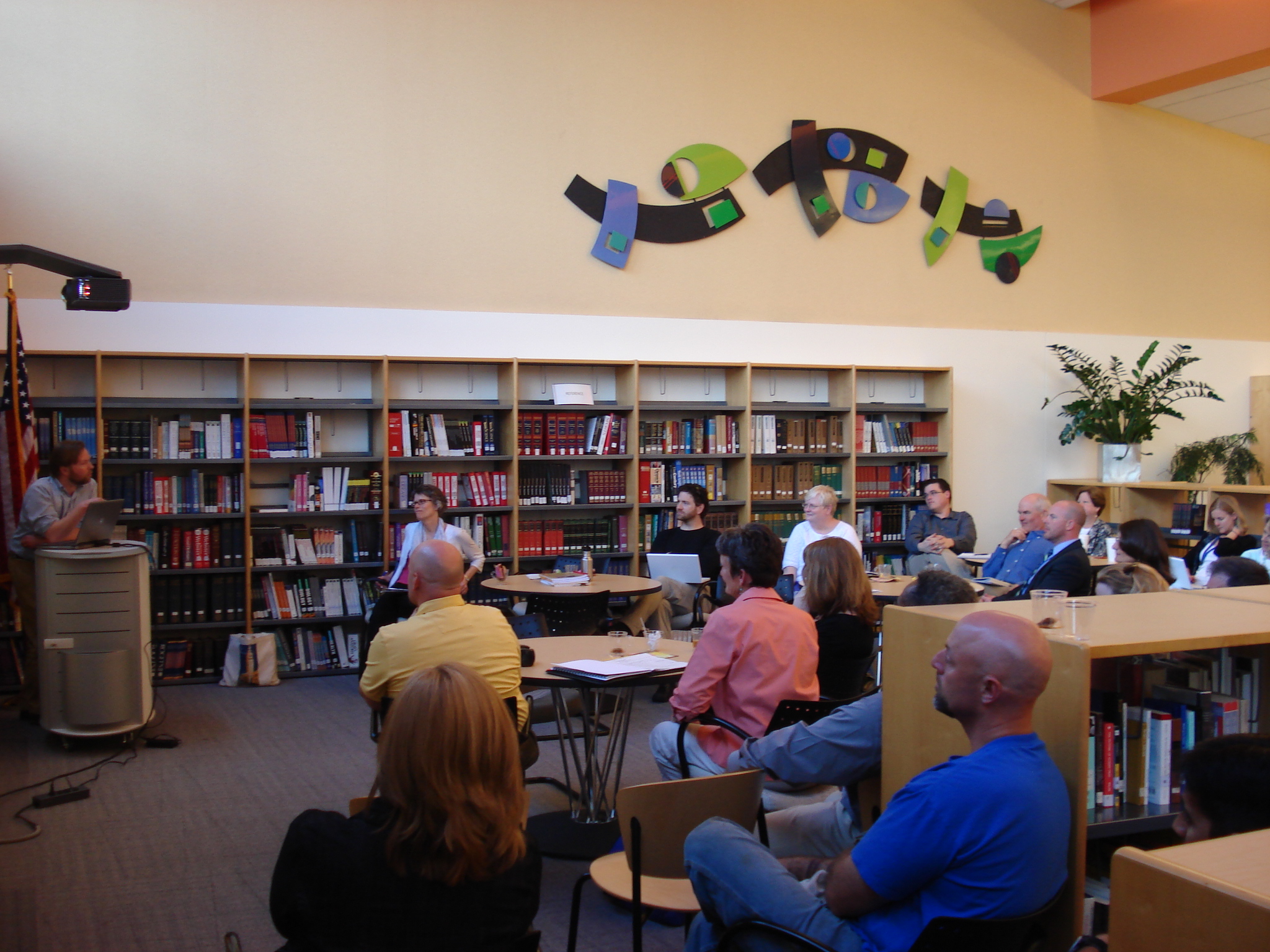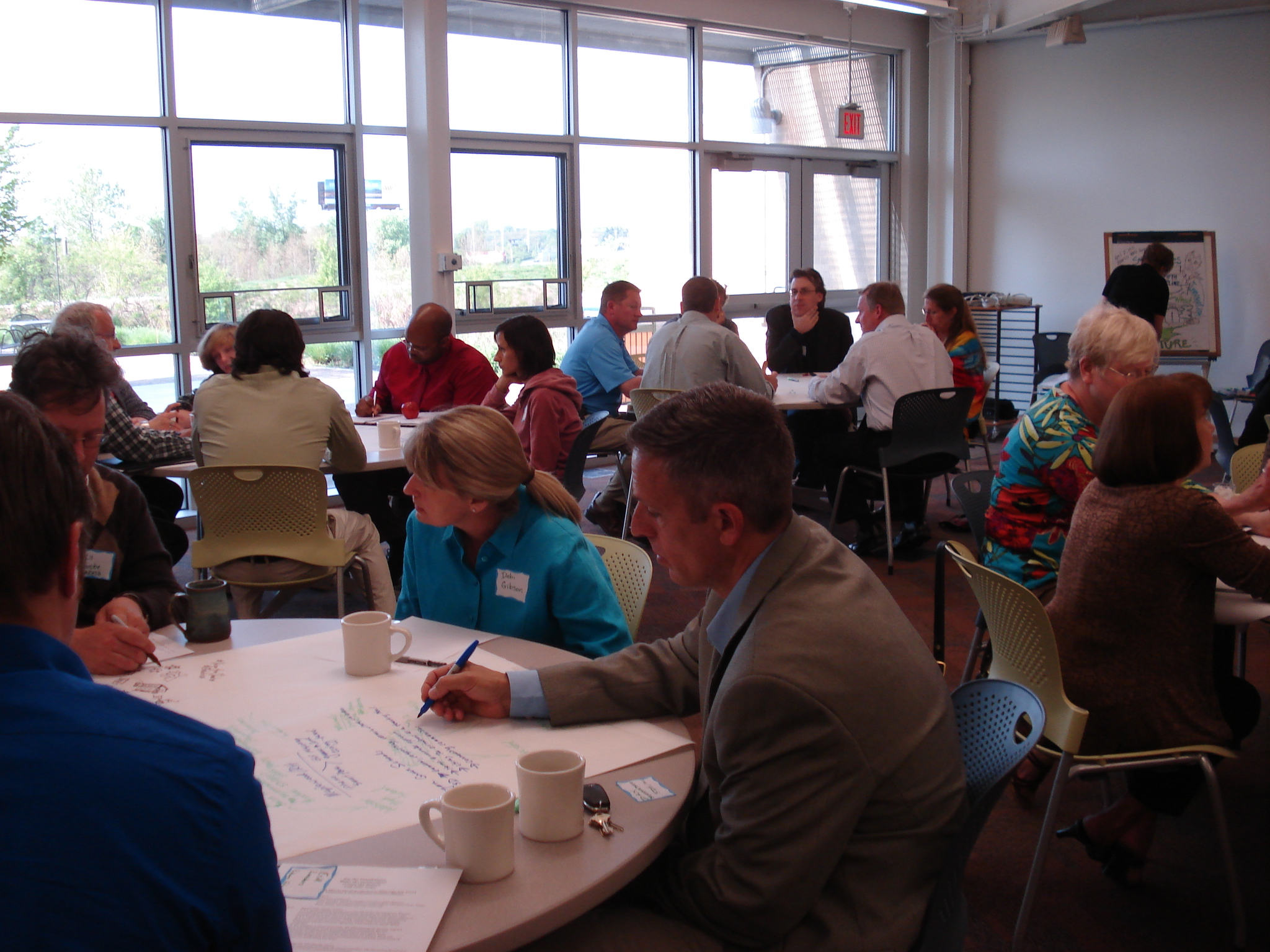 I’m sitting at a conference table with eight colleagues. We’re planning a second annual professional development seminar for this April 19 & 20, 2012. We’re talking about projects that are going on at each school that have to do with WATER.
Bob Dillon, MRH Middle School Principal, pipes up,
Well, we should have our aquaponics project going by spring.
Your WHAT? asked Tim Wood, TCS Sustainability Coordinator.
At the end of Bob’s explanation, Tim turned to Sheila Gurley, Head of TCS,
Well, Sheila, looks like we need a fish production center, too.
She nods in hearty agreement.
I’m sitting at a conference table with eight colleagues. We’re planning a second annual professional development seminar for this April 19 & 20, 2012. We’re talking about projects that are going on at each school that have to do with WATER.
Bob Dillon, MRH Middle School Principal, pipes up,
Well, we should have our aquaponics project going by spring.
Your WHAT? asked Tim Wood, TCS Sustainability Coordinator.
At the end of Bob’s explanation, Tim turned to Sheila Gurley, Head of TCS,
Well, Sheila, looks like we need a fish production center, too.
She nods in hearty agreement.
Oh, BTW...MRH is Maplewood Richmond Heights School District and TCS is The College School in Webster Groves. MRH is public, somewhere in the 60-70% free and reduced hot lunch demographic. TCS is an independent school, somewhere in the 5% free and reduced demographic.
These folks are at the same table. They’re sharing ideas. They know they have much to learn from each other.
One of the great myths in the field of education is that independent and public schools do not collaborate. I imagine that many of us think that public schools are inferior to independent schools. Most of us think even think that if independent schools seek to interact with public schools that they are in competition with each other; that they’re trying to BEAT each other.
Most of us don’t consider the actual root of the word competition: from Greek, com petre; petre: to strive; com: together; to strive together to get better.
Here in St. Louis, over the past twenty years, Louise and I have experienced this original, interdependent, co-constructive meaning. We have been a part of an ongoing history where independent and public schools collaborate to create dynamic professional development opportunities, both for themselves and for educators coming here from all over the country (and Canada, Australia, Korea, Japan, and Sweden).
In fact, the reason Louise and I came to St. Louis from Vermont (via Reggio Emilia, Italy) was because Louise was hired by Jan Phillips, Head of The College School at the time, to be their first ever "atelierista," and to work with Brenda Fyfe at Webster University to initiate a city wide educational investigation of The Reggio Approach in ten diverse school settings. It was Jan and Brenda’s vision from the beginning that a grant from the Danforth Foundation would support independent and public schools working together on this initiative.
After twenty years of growth and evolution, many new avenues have opened up for the schools involved. And, at the core remains the exciting element of collaboration between public and independent schools. A recent example was last April’s professional development seminar, We’re NOT Waiting for Superman, Learning for the Future in Action.
Current examples of public-independent collaboration will be featured this April 19 & 20, 2012 at our second annual seminar, Myth Busters: Challenge Assumptions and Learn for the Future, sponsored and led by the collaboration of MRH and TCS and Cadwell Collaborative. The educators and students in both schools will share their respective practices in the areas of systems thinking, expeditionary, theme-based learning, and design thinking; and their curricular projects that revolve around food, water and play-based learning.
The April seminar will be filled with these stories, practical knowledge and skills and joyful learning and collaboration among all of us. We invite you to join us!
For more information and registration forms just email Ashley. The seminar is limited to 75 educators.

